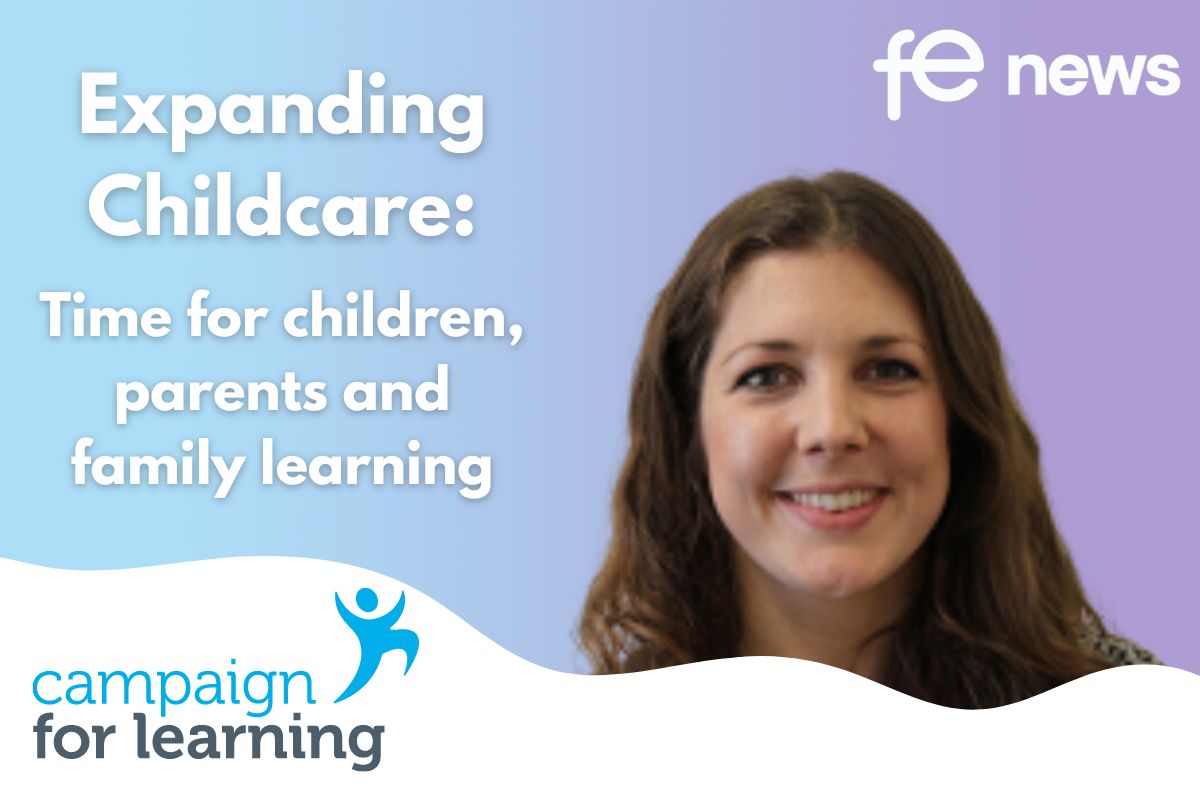Making a step change in child development through childcare

Expanding Childcare: Time for children, parents and family learning
Early years childcare and education has the potential to change young children’s lives, particularly disadvantaged children. The need for affordable childcare to enable parents to work is well discussed, but the role it can play in supporting children’s development does not grab the headlines in the same way. Child development needs equal weight with entry into the labour market.
The extra £4bn investment in childcare announced at the Spring Budget could make significant progress on childcare affordability. But these plans were curiously silent on the other important role of childcare – to level developmental outcomes and give all children the best start in life.
The recent announcement to extend free childcare to children of working parents from the age of 9 months is a welcome help to make childcare more affordable, but it will do little to help disadvantaged children or narrow the achievement gap.
A balanced childcare strategy
We now have an overly complex childcare system with different policies pulling in different directions, and not achieving value for money for children, parents or the tax payer.
Instead, we need a step change in childcare policy.
There are not many interventions that we know make a difference to the achievement gap, but high-quality early years childcare is one of them. It is completely possible for our childcare system to both support parents into work and children’s development.
We have worked with the Joseph Rowntree Foundation to set out how the childcare system in England should be designed. We identified the five key pillars of what makes a system that truly tackles disadvantage:
- Meaningful action to make childcare affordable for all
- High quality provision, consistently, to improve children’s outcomes
- Thoughtful design of provision to maximise takeup and access
- Building home learning into the support offered
- Integrating childcare into a wider landscape of support services
Only high-quality childcare makes a real difference to children’s outcomes and narrows the achievement gap, but childcare in England is not consistently high enough quality to do this. Higher funding, better pay and qualifications and stronger quality requirements are needed to make a step change here.
There needs to be action to make sure that disadvantaged children are able to take up the childcare that they are entitled to. There are currently significant inequalities in which children take up childcare, with low-income children, children with SEND and some ethnic minority children all less likely to take up the childcare on offer.
Integrated childcare and wider family policies
Children will always spend more time at home with parents and carers than in childcare. In order to make the biggest difference for children, it is vital to consider the role that childcare can play in supporting children’s learning and development outside as well as inside the setting. Childcare should be a fully integrated part of a wider support system, joining up to identify and address any additional needs early.
Effective childcare policy balances the two priorities of enabling parents to work and supporting children’s outcomes. It is entirely possible to design a system that does both, but recent policy changes are tipping the scales further and further towards childcare for working parents – at the expense of children’s outcomes, pushing problems further down the line into school and beyond.
Government has signalled an appetite for much higher public investment into the formal early years childcare sector, but complete system reform is needed so that childcare policy can achieve its potential.
Recommendation 1
The Government should introduce one simple, supply-side funding mechanism for childcare, provide all funding to childcare providers and give them the levers to improve quality and make sure that parents only ever face a bill that is affordable to them.
Recommendation 2
The Government must focus on pushing up the quality of childcare through improving pay and qualifications in the sector, making sure that every childcare provider is able to meet the needs of all children – including those with special educational needs and disabilities – and providing the funding levels that would enable this to happen.
Recommendation 3
The Government should integrate childcare into the wider family policies – including family learning – to meet the needs of families holistically. Childcare professionals, wider support services and parents will work together to support children’s development.
By Megan Jarvie, Head of Coram Family and Childcare
Campaign for Learning has released a new series of articles, Expanding Childcare: Time for children, parents and family learning.
See below when each article will be published on FE News:
Part One: Childcare the welfare state – 20th July
1. Will Snell, Chief Executive, The Fairness Foundation
Childcare and a new social contract
2. Anneka Dawson, Head of Pre-16 Education, Ceri Williams, Senior Research Fellow, and Alexandra Nancarrow, Research Fellow, Institute for Employment Studies
The childcare sector: Providers and the workforce in England
Part Two: Childcare and time for work – 21st July
3. Paul Bivand, Independent Policy Analyst
Women, employment and childcare
4. James Cockett, Labour Market Economist and Claire McCartney, Policy Adviser, Resourcing and Inclusion, CIPD
The planned childcare entitlements and progression into work
5. Jane van Zyl, Chief Executive, Working Families
Combining flexible working and childcare to solve the childcare crisis
Part Three: Childcare and time for child development – 24th July
6. Janeen Hayat, Director of Collective Action, Fair Education Alliance
Improving childcare quality to support educational outcomes
7. Megan Jarvie, Head of Coram Family and Childcare
Making a step change to child development through childcare
8. Professor Elizabeth Rapa and Professor Louise Dalton, University of Oxford
Childcare, children’s development and education outcomes
Part Four: Childcare and time for parental engagement – 25th July
9. Lee Elliot Major, Professor of Social Mobility, University of Exeter
The childcare revolution: A new opportunity for parental partnerships in child learning
10. Bea Stevenson, Head of Education, Family Links the Centre for Emotional Health
Childcare and parental engagement in child learning
Part Five: Childcare and time for adult skills – 26th July
11. Simon Ashworth, Policy Director, AELP
The new childcare entitlements and skills bootcamps
12. Sharon Cousins, Vice Principal, Newham College and National Association for Managers of Student Services Executive
The new childcare entitlements and access to further education
13. Susan Pember, Policy Director, HOLEX
A thriving society means linking the new childcare entitlements to adult learning
Part Six: Childcare and time for family learning –
27th July
14. Sam Freedman, Senior Fellow, Institute for Government
The childcare revolution and family learning
15. Susan Doherty, Development Officer – Family Learning, Education Scotland
Family learning and childcare: Lessons from Scotland
28th July
16. Susannah Chambers, Independent Consultant
Bringing childcare and family learning together
17. Henriett Toth, Parent
Family learning and childcare: A personal experience











Responses